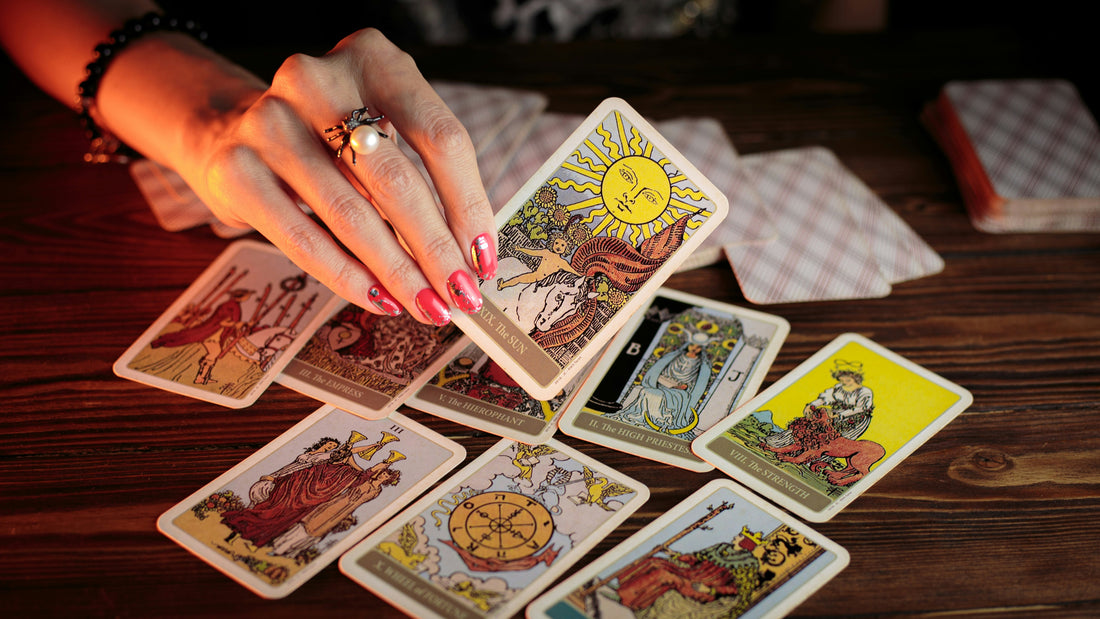The Tenacity of Fortunetellers

Mystic Meg: Fortunetellers Have Always Been Popular, Despite a Long History of Efforts to Silence Them
Since her death on March 9 2023, celebrities and clients have been paying tribute to Margaret Ann Lake, better known by her stage name “Mystic Meg”. In a career spanning five decades, Mystic Meg went from writing horoscopes to predicting winners on the live National Lottery broadcast from 1994 to 2000.
From Joseph interpreting Pharaoh’s dreams, to Elizabeth I’s astrologer John Dee (1527-1608), predicting the future has long been a path to fame and fortune. But unlike the many fortunetellers who came before her, Meg was able to practice her art without fear of persecution.
In the biblical Judaic culture of Joseph, magical practices were tolerated, but considered suspect and dangerous. And John Dee may have earned the protection of the queen, but he needed it. Throughout his long career as an astrologer, he was accused of witchcraft several times.
These accusations of harmful magic were often combined with the suspicion that fortunetellers were frauds taking advantage of popular credulity. In the 17th and 18th centuries, many European countries abandoned attempts to prosecute witches.
New legislation, such as the UK’s 1735 Witchcraft Act, focused on fraudulence alone. The act was used against spiritualists, psychics and astrologers up until the second world war.

Across the Channel, from the 18th to the 20th centuries, the French authorities waged a long and unsuccessful war on magicians of all kinds. Although many of the men and women who ended up on trial were rural “wise women”, “wizards”, or “cunning folk”, others were not that different from Mystic Meg and the astrology hotlines of the 1990s.
The “Red Witch”, Jean-Jacques-Maurice Talazac, preferred telling fortunes by post in an age when telephones were still a luxury. But unlike Meg, Talazac’s trade was illegal. He was prosecuted in 1908 and again in 1916 and sentenced to several months in prison, as well as a fine and costs.
So why is it that whenever the authorities have tried to repress fortunetellers for good, they have failed? Perhaps a fellow magician’s Twitter tribute to Meg offers a clue: “She defied the dreary sceptic,” wrote Uri Geller, “as did her fans.”
Fortunetellers and their fans
Critics of astrology, tarot and other popular magical practices tend to have a black and white view of what draws people to supernatural pursuits and how audiences treat prophecies and divination.
European thinkers in the 19th century saw attitudes to magic in racial terms, arguing that where “civilised” Europeans knew the difference between entertainment and reality, non-western cultures were too primitive to see magic as deception.

More recent work by anthropologists, sociologists and historians has not only questioned these racist assumptions about primitive credulity, but also increasingly shown that attitudes to magic in modern Europe remain flexible and uncertain.
Mystic Meg’s many fans could enjoy her predictions on the National Lottery Live or read her horoscopes in the paper without coming to any final decision about the reality or impossibility of the powers she professed.
In desperate times, even the most rational among us find it hard to dismiss bad omens. Why is it so hard to throw darts at a picture of someone you love, if you do not believe this symbolic attack can cause real physical harm? As musician Regina Spektor sings: “no one laughs at God in a hospital.”

Critics of superstition have often painted openness to magical interpretations as weakness or moral failing. From 18th century crusaders, such as Voltaire, to more recent psychologists, many have pointed out the real social costs of erroneous beliefs. But historians have discovered that where magic led, science often followed.
When the Nobel prize-winning scientists Frederick Soddy and Ernest Rutherford proved that atoms could be broken in 1901, Soddy’s first thought was that this was “transmutation” – like the famed transformation of lead into gold sought in Renaissance alchemy.
Rutherford retorted: “For Mike’s sake, Soddy, don’t call it transmutation. They’ll have our heads off as alchemists.”
Mystic Meg’s claims were largely limited to the star signs of likely lottery winners, or romantic predictions for the week ahead. But perhaps her own good fortune was to have risen to fame in a culture where the most dangerous associations of magic had mostly disappeared.![]()
______________________________________________________________
This article is republished from The Conversation under a Creative Commons license. Read the original article.
